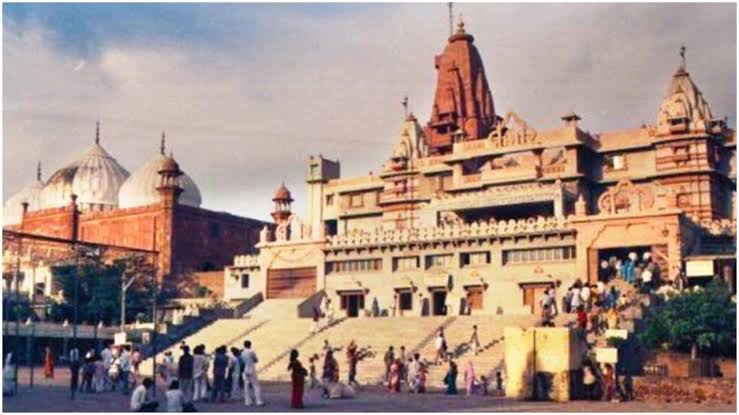The Supreme Court dismissed a public interest litigation (PIL) petition seeking the removal of Mathura’s Shahi Idgah Mosque
The appeal filed against an order of the Allahabad High Court which had dismissed the PIL was not entertained by the bench comprising of Justice Sanjiv Khanna and Justice Dipankar Datta.
The Top court said that it is wrong for the Court intervene in the disputed questions of fact.
The Apex Court said that parties would have issues while challenging any enactment.
In October 2023, the Allahabad High Court had rejected a PIL that wanted recognition Shahi Idgah Mosque at Mathura site as birthplace of Lord Krishna(Krishna Janmabhoomi).
Removal of the mosque from the disputed land was also one of the points in the PIL.
The appeal in the case was put before the Top Court after case was dismissed by the High Court noting that the reliefs sought were already pending consideration before the High Court in related suits.
The PIL before the High Court was filed by advocate Mahek Maheshwari in 2020. He argued that numerous historical texts have documented that the site in question was in fact Krishna Janmabhoomi.
Further, the plea asserted that the historical roots of Mathura could be traced back to the time of the Ramayana, while Islam arrived much later, approximately 1,500 years ago.
The PIL claimed that Lord Sri Krishna’s birthplace was beneath the mosque and that there were many signs which established that the mosque was a Hindu temple and the appointment of a commission was essential.
It further mentioned the existence of a lotus-shaped pillar, which was a classic characteristic of Hindu temples and an image of Sheshnaag, one of the Hindu deities who protected Lord Krishna on the night of his birth, which was also present there.
The plea added that Shahi Idgah does not qualify as a legitimate mosque under Islamic jurisprudence since a mosque cannot be constructed on land acquired through force. On the other hand, according to Hindu jurisprudence, a temple retains its sacred status even if it lies in ruins, the petitioner said.
The petitioner urged the Court to order the transfer of the land to the Hindu community. Further, the petitioner prayed for the establishment of a legitimate trust for the Krishna Janmabhoomi Janmasthan, which would be dedicated to constructing a temple on the same land.
Additionally, the plea prayed for a court-monitored excavation using GPRS technology by the Archaeological Survey of India (ASI) at the disputed site, which is believed to have been constructed over Krishna Janmasthan.
A civil suit is already pending before a trial court seeking similar reliefs.
Earlier, a trial court in Uttar Pradesh, the Allahabad High Court and the Supreme Court had rejected the Hindu Trust’s plea for a scientific survey of the disputed site.
Recently, the Supreme Court declined to orally stay an Allahabad High Court order allowing the appointment of a court commissioner to inspect the premises of the mosque.


